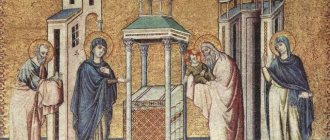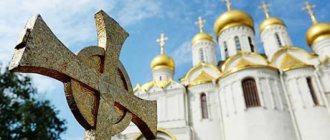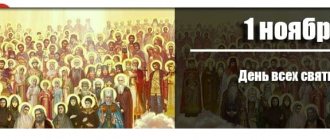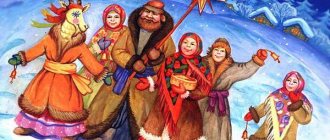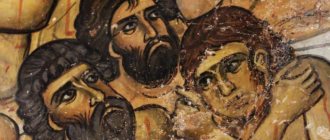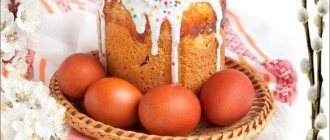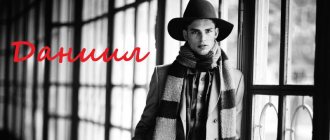Vladislav of Serbia is a saint, photos of whom can be seen not only in church publications, but also in ordinary history textbooks. Who was this man during his lifetime? For what merits was he canonized? What did you become famous for? Who does this saint help and with what? How should one pray in front of his icon? These and many other questions arise among believers quite often, since Vladislav of Serbia, a saint who enjoys extraordinary popularity in the Balkans, is little known in Russia.
Who was this man?
In the world, the saint’s name was Stefan Vladislav Nemanjic and this man was the ruler of Serbia, the king. He reigned from 1234 to 1243. To a modern person, this period of time in power may seem quite short. However, for the thirteenth century the duration of the reign was very respectable.
The merits of this king include political unity with Bulgaria, achieved through marriage with Princess Beloslava. Under his rule, the Serbs managed to defend their territories against the threat of conquest by the Hungarian crusaders, namely the coastal region of Zakhumje.
However, the sovereign's luck did not last long. Soon after the death of his wife’s father, hordes of Mongol-Tatars invaded the territory of the Balkans. Serbia was ruined by them. Of course, this gave rise to discontent among the nobility and nobility. Vladislav did not wait for his overthrow and abdicated the rule himself in favor of his younger brother.
Vladislav was born around 1198 (the exact date is unknown to historians), and died in early November 1267.
Name day traditions
Before the revolution, only name days were celebrated in Rus', considering this day the main holiday in a person’s life. After the change of regime and system, many traditions were destroyed during the fight against religious remnants, including name days. Then they began to recognize only the day of the actual birth of a person.
How was Vladislav’s name day celebrated according to the church calendar? They celebrated them widely, laid tables rich in food and drinks, and invited relatives and friends. We celebrated this day in a sincere atmosphere, not allowing revelry, disorderly behavior and other behavior displeasing to God.
Pies, loaves, and rolls were served as treats, and homemade beer was brewed. Baking could be both sweet and savory. The raisin rolls were a must. Godparents were presented with a loaf of sweet stuffing - this was how respect for their status was expressed.
How did Vladislav become king?
He was the second son of King Stephen II the First Crowned and received the throne under very confusing circumstances. Power was inherited by Stefan's eldest son, Radoslav. However, he lost the throne as he was deposed from it in 1234 by nobles.
Historians have two hypotheses related to this palace coup. According to the first, the future saint, Prince Vladislav of Serbia, led the conspirators. According to another version, he was approached with a request to occupy the throne vacated by Radoslav. No matter how the events developed that caused Vladislav to become king, he turned out to be a very good ruler.
Vladislav's name day in 2022 according to the church calendar
- 7 October Vladislav of Serbia, Prince
Our ancestors had many signs associated with this date. For example, it was believed that if the birch tree did not have time to lose all its leaves by Vladislav’s Day, it would take a long time to wait for the first snow.
Church form of the name, its origin
In this case, in the holy books and church calendar the name is written in the same way as on the birth certificate: Vladislav.
The name has Slavic roots. It is translated, as you already guessed: “possessing glory”, “glorious”.
Interesting moments from family history
Vladislav Serbsky is not the only saint in his family. His uncle Savva, the founder and first archbishop of the autocephalous Serbian Church, was canonized as a miracle worker, and lived his life as a monk. The worldly name of this person is Rastko Nemanjic. Sava's mother took monastic vows and was also canonized. She was canonized under the name Anastasia.
Saint Sava of Serbia is often confused with another archbishop, who came from the same family and bore the same name. One of the sons of the founder of the Nemanjic dynasty, Stefan the First-Crown, Predislav was a clergyman. He took monastic vows under the name of Sava. This man was a bishop in Zakhumie, which was saved from the Hungarian invasion. And later he became the Archbishop of Serbia, known as Sava the Second.
The interesting facts do not end with the fact that the life of the Nemanjic family was closely connected with Orthodoxy and that Vladislav the Serbian saint was not the only one in this family. The founder of the dynasty, Stefan the First-Crown, was seriously ill at the end of his life. Whether the decision to retire from worldly life is related to his health or not is unknown to anyone. But shortly before his death, the king took monastic vows. Stefan was not only a ruler, but also a writer and publicist. His literary works, created in the middle of his life, amazingly combine details of jurisprudence, descriptions of everyday life and spiritual orientation.
The king founded the Žiča monastery, where he took monastic vows, taking the spiritual name Simeon. He was also canonized and revered by the Serbian Church. In Russia, this man is practically unknown. Years after the loss of the throne, his eldest son, Radoslav, who became Jovan in monasticism, also took monastic vows.
All members of the family, in whose hands both secular and spiritual power over the country was concentrated in the early Middle Ages, are buried in the Milesheva monastery, built during the reign of Vladislav.
What do they give for name days?
Name day is a holiday, and a fun one at that. And on any holiday it is customary to give gifts. What do they give for Vladislav’s name day?
Just like on other name days, on this special day it is not customary to present anything that personifies everything worldly and transitory. Since ancient times, on name days people have given everything that relates to religion and ways to turn to God. In the old days, on this day the birthday person could receive a handwritten icon, church literature, lamps, candles and other attributes.
If icons were given, then, as a rule, they depicted the face of the Saint, after whom the hero of the occasion was named. By the way, on the morning of the name day, the birthday boy went to church, where he had to confess, take communion, light candles, and venerate the icon of his Saint. In addition, relatives ordered a prayer service for the health of the birthday boy. This is how Vladislav’s name day is celebrated.
What was Vladislav’s main service to the Serbian Orthodox Church?
Without a doubt, every ruler of the past, regardless of what country he occupied the throne in and in what historical period this happened, had services to the church. We are talking about the foundation and construction of temples and monasteries. Granting economic freedoms or special powers to representatives of the clergy - abbots of monasteries or churches.
Of course, Saint Vladislav of Serbia, whose life outside the period of his rule of the country is described extremely poorly, was no exception. During his time in power, beautiful churches and monasteries were founded and built, which to this day are a source of national pride for the Serbs.
However, the main merit of the ruler to the church and the Serbian people is considered to be the return to the homeland of the relics of St. Sava, who died in Bulgaria. The first archbishop of the independent Serbian Church and its founder died suddenly while being a guest of the Bulgarian Tsar Ivan Asen II, the father of his wife Vladislav. This happened in 1236. The archbishop stopped at the court of the ruler of Bulgaria while returning home from the Holy Land, where he was making a pilgrimage. Savva was buried in the Church of the Forty Martyrs, which still stands in Tarnovo.
Saint Vladislav icon of what they pray for
Prince Vladislav, the youngest son of King Stephen of Serbia, was crowned king in 1230 by Saint Sava, the founder of the independent Serbian Church, later the first Archbishop of Serbia.
And Vladislav’s first act was the creation of a new monastery, Mileshevo, in the name of the Ascension of the Lord. After the death of Saint Sava, Vladislav traveled many times to his father-in-law, the Bulgarian King Asan, with a request for the return of the relics of St. to Serbian land. Savva from the Bulgarian city of Tarnovo, where he was buried in the princely Church of the Forty Martyrs. When Vladislav achieved this, and the holy relics were placed with celebrations in Mileshevo - the monastery built by Vladislav in Herzegovina, they discovered that the relics of St. Savvas are incorruptible and miracles of healing flow from them.
It was through the efforts of Vladislav that the Serbian land acquired its national relic; this happened in 1239.
Having lost his power, Radoslav was forced to seek refuge in Drach, but even there the beauty of his wife served as a source of trouble for him. Soon he was deprived of this malicious and crafty wife, who was for him, according to the same Theodosius, as Delilah was for Sampson. Because of her, in Drach, the hatred of the local ruler fell upon Radoslav, and he barely escaped death. Wanting to end the hostility, Saint Sava adorned Radoslav with the angelic monastic rank, giving him the monastic name John. To finally end the strife, the high priest crowned his nephew Vladislav with a royal crown. Soon, with the blessing of his uncle, Vladislav married the daughter of the powerful Bulgarian Tsar John II Asen Beloslava.
However, Vladislav was no longer destined to see his beloved uncle and archbishop during the latter’s earthly life. Having visited the holy places, on the way back, St. Savva, who was visiting the Bulgarian Tsar Asen, went to the Lord on January 14/27, 1236, not having reached his native Serbia quite a bit. After the funeral service performed by the Bulgarian Patriarch Joachim, the saint’s body was buried with great honors in the monastery church of the Forty Martyrs of Sebaste in Trnovo, built by the Bulgarian king.
When Vladislav arrived in the Bulgarian land, Tsar Asen greeted him with love far from his capital. Arriving in Trnovo, Vladislav first went to the monastery, where the resting place of St. Sava was. Arriving at the monastery, he, together with the bishops and nobles, paid worthy veneration to the saint of God, as his father and mentor. Having bowed to the saint’s tomb, the king from the depths of his heart prayed to the saint, repenting of his sins and asking him not to reject his request and not to leave his fatherland, for which the saint had undertaken countless deeds and labors. So, having fervently prayed to the holy saint, Vladislav left the temple and went to the festive reception prepared by the Bulgarian Tsar.
That night, the Angel of God in the form of a saint commanded the king to give the holy relics to be transferred to the Serbian land. Frightened by this phenomenon, the king called the patriarch and advisers in the morning and told about what he had seen in his dream. After listening to him, they said that this visit from God was because of the saint, and unanimously asked Asen to give this great shrine to King Vladislav, fearing, otherwise, to bring the wrath of God upon the Bulgarian kingdom.
Thus, praising God and rejoicing, he, together with the bishops and his nobles, carried the precious body of the saint with psalms and hymns. When they reached the borders of Serbia, Archbishop Arseny with bishops, abbots and many noble people came out to meet them and reverently bowed to the honest relics of their spiritual father and mentor. Having learned about the arrival of the relics, people flocked in large numbers from everywhere. Many received healing from their illnesses from God and his saint.
After some time, St. Savva appeared in a dream to one reverend and God-loving elder and told him that the holy relics should rest not in the ground, but in the church. After this, the incorruptible body of the saint was raised from the ground and laid in the temple for the worship of all believers. The relics of the saint rested in Mileshevo until 1594, when the wicked Turks took this greatest shrine of the Serbian people and burned it on Vracarova Mountain in Belgrade. At the site of the burning of the relics, the majestic Cathedral of St. Sava has now been erected.
After the death of the Bulgarian Tsar John Asen in 1241, the situation in Serbia changed. Many noble and powerful nobles were not happy with the proximity of St. Vladislav and the Bulgarian king. At the same time, in the spring of 1241, Tatar hordes passed through Serbia and neighboring Bosnia. All this caused great concern among the Serbian rulers, and under its pressure, Vladislav was forced in the spring of 1243 to cede the throne to his younger brother Uros (1243 - 1276). However, the brothers soon reconciled, and Uroš was kind to his older brother. He gave him Zeta to rule and left him the royal title. So Vladislav lived in peace and harmony with his brother for more than twenty years. What exactly the ruler was dissatisfied with remains in the realm of various hypotheses and assumptions, but, apparently, the main reason for the discontent was the strong influence of neighboring Bulgaria. However, it is not always possible to understand and reliably trace all the vicissitudes of Serbian history, due to the small number of written sources dedicated to the reign of St. Vladislav. Later sources also report sparingly about the life of the saint, but the little that is available speaks of his good relations with his brother Urosh. Saint Vladislav abandoned his ambitions as a ruler and never again tried to regain his throne. Vladislav had two sons, Stefan and Desa, and a daughter, whose name has not been preserved. It is only known that she was married to Prince Churu Kacic.
Like all Nemanjić, Vladislav was devoted to his patronymic and Orthodoxy. The spirit of creation manifested itself early in him. Around 1225, while he was still ruling a region in Lima, with the blessing of St. Sava, he built the very beautiful Milesheva monastery, dedicated to the Ascension of the Lord. Due to its beautiful fresco paintings, this monastery is one of the most significant monuments of Serbian medieval architecture. Among the frescoes you can also find a saint’s portrait of St. Vladislav himself. Images of the saint are also preserved in Dečani, in the Peć Patriarchate and in the Orahovica monastery. One of the icons of St. Vladislav is now in the museum of the Serbian Orthodox Church in Belgrade.
Why did the Bulgarians refuse to return the relics of Sava the First of Serbia?
Of course, the nobility and clergy of Serbia were unhappy that the ashes of the founding father of their autocephalous church were outside the country. Vladislav repeatedly addressed Ivan Asen II with written petitions for the return of Sava’s relics to his homeland. However, the Bulgarian king invariably responded to them with a polite but firm refusal. Of course, the ruler of Bulgaria was not sorry to return Savva’s bones to his relatives; the reason for the refusals was not at all the “capricious mood” of the king.
The Archbishop of Serbia was highly revered in the Balkans, and enjoyed fame and respect not only in his homeland. His opinion was taken into account, and many people were confident in the holiness of this man even during his lifetime. In other words, the question was not about returning the ashes of an ordinary person to their homeland, but about finding the relics of a saint. The political moment was also important. Bulgaria in those days was a kind of “counterweight” to Byzantium. Of course, to maintain its position and authority in the international arena, the country needed its own saints and their relics to venerate.
How did Vladislav manage to regain his power? Miraculous Intervention of the Lord
Desperate to convince his father-in-law, Vladislav of Serbia, whose holy uncle rested in the Bulgarian temple, personally went on a visit to the neighboring state. What the ruler of Serbia was counting on remains a mystery to this day. Vladislav was a very educated and wise politician and could not help but realize the slim chances of success in negotiations with the Tsar of Bulgaria.
Indeed, the negotiations with the father-in-law seemed to have frozen in one place. The King of Serbia went to the resting place of his uncle and prayed for a long time before his relics, repented and tearfully asked for help from above in transferring the remains to his homeland, orphaned without his patron saint.
And that night, during Vladislav’s prayer, a miracle happened. An Angel of the Lord appeared to the Bulgarian Tsar in a dream and reproached him. He also ordered the relics of Saint Sava to be returned to his relatives for rest in a Serbian monastery.
Of course, it was impossible to resist the will of the Lord himself. The relics of Saint Uncle Vladislav were delivered with great honor to the Mileshevo monastery, where they rested until the end of the sixteenth century. In 1594, the famous military and statesman of the Ottoman Empire, Koca Sinan Pasha, ordered the remains of the saint to be taken to Belgrade, where he had them publicly burned on Mount Vracar. After the liberation of the country from Turkish rule, a temple was built in this place in memory of the barbaric destruction of the elder’s relics.
Intervention from above, the miracle of the appearance of an Angel, who commanded the return of the body of the holy elder to his homeland, formed the basis of the plot of the famous fresco, which became one of the symbols of the country, located in the cathedral church of the Ascension of the Lord in the Milesheva monastery.
And, of course, the fact that, through the king’s prayer, a miracle happened and the Lord sent his Angel to help Vladislav in earthly affairs, became one of the reasons for the canonization of this ruler.
Life of the Blessed Vladislav of Serbia
The holy king Stefan-Wladislav became another noble branch on the glorious vine of the Nemanjić dynasty, which gave the world many holy men and devotees of piety. He was the second son of Saint Stephen the First-Crown, the nephew of Saint Sava and the grandson of the founder of this dynasty of Serbian rulers - Stefan Nemanja, known as the Monk Simeon the Myrrh-Streaming. Both the grandfather, the father, and the uncle of the blessed Vladislav achieved true holiness through their labors and deeds, receiving from the Lord imperishable crowns of glory. After the blessed death of St. Stephen the First-Crown, Serbia was ruled by his eldest son Radoslav, who at first was a ruler “worthy of all praise,” but over time, according to the church writer Theodosius, “became submissive to his wife, from whom he was damaged in mind.” The Serbian nobility was dissatisfied with the behavior of their king, and under their pressure Vladislav was forced to accept power, so that “enmity arose between the brothers.” Their uncle, Archbishop Savva, exhorted the brothers to live in peace, but was not able to immediately reconcile them.
Having lost his power, Radoslav was forced to seek refuge in Drach, but even there the beauty of his wife served as a source of trouble for him. Soon he was deprived of this malicious and crafty wife, who was for him, according to the same Theodosius, as Delilah was for Sampson. Because of her, in Drach, the hatred of the local ruler fell upon Radoslav, and he barely escaped death. Wanting to end the hostility, Saint Sava adorned Radoslav with the angelic monastic rank, giving him the monastic name John. To finally end the strife, the high priest crowned his nephew Vladislav with a royal crown. Soon, with the blessing of his uncle, Vladislav married the daughter of the powerful Bulgarian Tsar John II Asen Beloslava.
Pious Vladislav was obedient to his uncle, the archbishop, in everything and remained in peace and harmony with him. When St. Sava decided to leave the high priestly throne and communicated his desire to Vladislav, he tearfully asked the saint to change his intention, but could not keep him. In 1233, St. Savva gathered a council of Serbian bishops in Zhiche and, having announced his intention, chose from among his disciples an heir - blessed Arseniy, a man “who is reverent in everything and who keeps God’s commandments with fear.” Vladislav and his nobles also arrived at the cathedral, where the saint gave them instructions and commanded them to preserve and protect the holy churches. When St. Savva went to the Holy Land in the spring of 1234, Vladislav generously supplied him with gold and everything necessary for distribution in holy places.
However, Vladislav was no longer destined to see his beloved uncle and archbishop during the latter’s earthly life. Having visited the holy places, on the way back, St. Savva, who was visiting the Bulgarian Tsar Asen, went to the Lord on January 14/27, 1236, not having reached his native Serbia quite a bit. After the funeral service performed by the Bulgarian Patriarch Joachim, the saint’s body was buried with great honors in the monastery church of the Forty Martyrs of Sebaste in Trnovo, built by the Bulgarian king.
A year after the death of the saint, his worthy heir, Archbishop Arseny, turned to the pious Vladislav, urging him to do everything possible to ensure that the relics of St. Sava were transferred to Serbia. “It is not good and indecent before God and before people,” said Saint Arsenios, “for us to leave our father, equal to the apostles, a teacher given to us from Christ, who accomplished many deeds and worked hard for the Serbian country, adorning it with churches, royal power, archbishops and bishops, and all the institutions and laws of Orthodoxy - so that his holy relics lie outside the borders of his fatherland and the throne of his church, in a foreign land.”
Inspired by the words of Arseny, Vladislav without delay sent the most worthy people to his father-in-law, Tsar Asen, with a request to give him the relics of the saint. Having received Vladislav's letter and listened to the envoy, the Bulgarian king was very sad. He answered the Serbian ruler that if the saint’s body had been left without due honors, then his request would have been completely legal. But, since it rests in the Church of God, and is given the same honors as it would be in Serbia, he does not understand why Vladislav “troubles even the saint.” With this, the Bulgarian ruler sent the envoys back.
Vladislav, not satisfied with the answer he received, again sent his nobles to the king with the words: “If I have found grace before you, my parent, then do not close your fatherly mercy before me, and do not leave me, so that my life does not plunge into sadness. Give me the holy relics of my lord and father, so that I can transfer them to my fatherland!”
King Asen was at a loss what to do, thinking that, having lost the saint, he would also lose his kingdom. Calling upon the Bulgarian Patriarch and his entourage, he turned to them for advice in this matter. They all unanimously assured him that under no circumstances should he give in to Vladislav’s requests, because “the nobles and the whole city are very indignant because of this.” The king again wrote words of consolation to his son-in-law, adding: “If God wanted the saint to rest among us, the faithful in Christ, then who am I to resist the will of God or dare to disturb the grave or holy relics? For the saint really did not bequeath anything about his transfer. So, ask me for whatever you want, ... my son, but stop forcing me to give you what is not easy for me to give, for the patriarch, and the nobles, and the whole city oppose me in this.” And again, having given gifts to the envoys, he sent them to Vladislav.
Seeing such firmness of the Bulgarian king, Vladislav decided to go to Bulgaria himself and, taking with him “many of his noble people, bishops and abbots,” he sent messengers ahead of him, notifying Asen of his imminent arrival. With them, Vladislav also sent gifts for the patriarch and royal advisers.
When Vladislav arrived in the Bulgarian land, Tsar Asen greeted him with love far from his capital. Arriving in Trnovo, Vladislav first went to the monastery, where the resting place of St. Sava was. Arriving at the monastery, he, together with the bishops and nobles, paid worthy veneration to the saint of God, as his father and mentor. Having bowed to the saint’s tomb, the king from the depths of his heart prayed to the saint, repenting of his sins and asking him not to reject his request and not to leave his fatherland, for which the saint had undertaken countless deeds and labors. So, having fervently prayed to the holy saint, Vladislav left the temple and went to the festive reception prepared by the Bulgarian Tsar.
That night, the Angel of God in the form of a saint commanded the king to give the holy relics to be transferred to the Serbian land. Frightened by this phenomenon, the king called the patriarch and advisers in the morning and told about what he had seen in his dream. After listening to him, they said that this visit from God was because of the saint, and unanimously asked Asen to give this great shrine to King Vladislav, fearing, otherwise, to bring the wrath of God upon the Bulgarian kingdom.
When, at the call of Asen, his son-in-law, together with the Serbian bishops and nobles, appeared before him, the king was ready to fulfill their earnest request. Somewhat saddened, Asen turned to Vladislav with the following words: “I wanted to have the saint in my monastery, as given to me by God, and I decorated and revered his holy tomb, as you saw, without thinking that the saint would be taken away from us. But since you, Royal Highness, took the trouble to come to me, your father, I do not want to let you, my son, saddened. So, receive your father in the Lord and take him to your home according to your desire.” From such unexpected joy, the stolen Vladislav with the bishops and his noble people “fell to the ground and bowed to the king.”
Then, “having prepared the royal scarlet robe and everything necessary to raise the saint’s body from the bowels of the earth,” Vladislav ordered the service to be performed for the saint, and he and his bishops “opened the saint’s grave and saw that his body had not been touched by corruption, so that even the hair on his head and his beard were light and whole, and it seemed as if he was lying and sleeping.” The incorrupt body of the saint exuded a wonderful fragrance, the wonderful aroma of which was felt by everyone who gathered at his grave. According to Blessed Theodosius, a fragrance exuded not only the holy body of the saint, but even the tree and the earth in which it rested.
Having learned about what was happening, the people began to flock in large numbers to the tomb to see the saint. Many who flocked to the relics received healing from illnesses. “Those tormented by an unclean spirit were free, the lame walked, the hunchbacked were straightened, and the saint gave hearing to the deaf.” Seeing such miracles and grace, the people began to murmur against Tsar Asen for giving the relics of the saint to Vladislav. Hearing about this, the Serbian ruler, out of fear that the king might change his decision, ordered the holy relics to be taken without delay and carried to Serbia.
At this time, the king called Vladislav to a meal of fun and love, during which he addressed him with the following words: “The wealth given to me by God - holy, you, having come, received it and sent it to your home. So, you are satisfied, for you have fulfilled the desire of your heart, may we, through the prayers of the saint, receive mercy from God, for we had true love for him during his life and after his death!” Vladislav showered the king and the patriarch with generous gifts and honors, and the king showered the king and everyone with him, and so they parted with love. Having said goodbye to the Bulgarian Tsar, Vladislav soon reached the relics of the saint. According to Theodosius, the king rejoiced like “David before the ark of the covenant” and, walking in front of the relics, joyfully exclaimed:
“My soul will rejoice in the Lord, for He has clothed me with the garments of salvation, and has clothed me with the robe of gladness, having given me my lord, my holy father and teacher, an intercessor in the prayers of my fatherland and the honor of my inheritance.”
And further:
“I will exalt You, my God, for You have magnified Your mercy on me, and now I am blessed, and now I am adorned, I am exalted above the kings of the earth, I am richer than men. How great is Thy mercy towards me, O Lord, How, having loved me, O my God, my mercy has been rewarded! Blessed be Thy name forever and ever!”
Thus, praising God and rejoicing, he, together with the bishops and his nobles, carried the precious body of the saint with psalms and hymns. When they reached the borders of Serbia, Archbishop Arseny with bishops, abbots and many noble people came out to meet them and reverently bowed to the honest relics of their spiritual father and mentor. Having learned about the arrival of the relics, people flocked in large numbers from everywhere. Many received healing from their illnesses from God and his saint.
The pious Vladislav, together with a host of bishops, abbots and nobles, with psalms and chants, solemnly carried the body of the saint, and, having come to Mileshevo, they laid the precious relics in an honorable tomb in the Church of the Ascension of the Lord, built by Vladislav. In honor of the saint, the pious Vladislav organized a great feast, at which he wholeheartedly entertained bishops and noble people, and also generously poured out his mercy on the poor. After some time, St. Savva appeared in a dream to one reverend and God-loving elder and told him that the holy relics should rest not in the ground, but in the church. After this, the incorruptible body of the saint was raised from the ground and laid in the temple for worship by all believers. The relics of the saint rested in Mileshevo until 1594, when the wicked Turks took this greatest shrine of the Serbian people and burned it on Vracarova Mountain in Belgrade. At the site of the burning of the relics, the majestic Cathedral of St. Sava has now been erected.
After the death of the Bulgarian Tsar John Asen in 1241, the situation in Serbia changed. Many noble and powerful nobles were not happy with the proximity of St. Vladislav and the Bulgarian king. At the same time, in the spring of 1241, Tatar hordes passed through Serbia and neighboring Bosnia. All this caused great concern among the Serbian rulers, and under its pressure, Vladislav was forced in the spring of 1243 to cede the throne to his younger brother Uros (1243 - 1276). However, the brothers soon reconciled, and Uroš was kind to his older brother. He gave him Zeta to rule and left him the royal title. So Vladislav lived in peace and harmony with his brother for more than twenty years. What exactly the ruler was dissatisfied with remains in the realm of various hypotheses and assumptions, but, apparently, the main reason for the discontent was the strong influence of neighboring Bulgaria. However, it is not always possible to understand and reliably trace all the vicissitudes of Serbian history, due to the small number of written sources dedicated to the reign of St. Vladislav. Later sources also report sparingly about the life of the saint, but the little that is available speaks of his good relations with his brother Urosh. Saint Vladislav abandoned his ambitions as a ruler and never again tried to regain his throne. Vladislav had two sons, Stefan and Desa, and a daughter, whose name has not been preserved. It is only known that she was married to Prince Churu Kacic.
Like all Nemanjić, Vladislav was devoted to his patronymic and Orthodoxy. The spirit of creation manifested itself early in him. Around 1225, while he was still ruling a region in Lima, with the blessing of St. Sava, he built the very beautiful Milesheva monastery, dedicated to the Ascension of the Lord. Due to its beautiful fresco paintings, this monastery is one of the most significant monuments of Serbian medieval architecture. Among the frescoes you can also find a saint’s portrait of St. Vladislav himself. Images of the saint are also preserved in Dečani, in the Peć Patriarchate and in the Orahovica monastery. One of the icons of St. Vladislav is now in the museum of the Serbian Orthodox Church in Belgrade.
Hieromonk Ignatius Shestakov
How did this man live after abdicating the throne?
Of course, Vladislav of Serbia is a saint not only because a miracle happened through his prayer. The king led a righteous life and managed to avoid many temptations. Pride, lust for power, and anger were alien to him. The life of Vladislav after his abdication speaks about such personality qualities.
The Serbian king accepted his fate with meekness and humility. Moreover, he independently decided to transfer the reign to his younger brother. There are not many examples of such behavior in history.
After abdicating the throne, Vladislav lived another twenty years. Not once over the years did he grumble about his fate or plot against his younger brother, who took the throne. Moreover, Vladislav was a reliable support, close friend and adviser, assistant to the new king.
This man lived extremely simply. He was always attentive to the needs of others, prayed a lot and did charity work.
What fate and character has the bearer of this name been awarded with?
Character. Vlad is a true diplomat, balanced and persistent. He does not like to argue in vain and almost never proves that he is right by shouting. He is very independent, does not like to be led, and even commanded.
His weak side (and it is not a fact that this is precisely a weakness) can be called secrecy: he experiences all his feelings deep inside himself, without showing them even to his family. In addition, while this guy treats people with respect, he doesn’t like animals too much, and can even treat them cruelly.
Fate:
- Childhood. Vlad is a real little gentleman, he will never hit a girl, and if in kindergarten someone constantly opens the door for the teacher, it will also be Vlad. This is a very restless toddler, from whom you must hide everything: matches, household chemicals, sockets. He is inquisitive, nimble, and sometimes seems completely fearless.
- Youth. Unlike most of his peers, this guy is not prone to bad habits. He is concerned about his own future - finishing school well, entering a prestigious university, creating a brilliant career. Also, the bearer of this name likes to take care of himself and follow a certain style, so among his peers he is often considered handsome. And besides, this is the first party boy at school.
- Mature years. This is a very purposeful person who loves luck. When communicating with the opposite sex, Vlad “turns on” a true aristocrat, charming and decent. As for his career, this person will go to success by any means, even achieve his goal through someone else’s hands. Having married, he turns out to be a business person, often helping his wife with household chores. He sincerely rejoices at the birth of his son, but even more if he has a daughter.
How is the bearer of the name doing on the love front? Which girl, girl or woman will Vlad certainly fall in love with, and which one will not touch the strings of his heart? The answers are in this video:
What do they approach this saint with?
How does Saint Vladislav of Serbia help? Traditionally, people who need to resolve disputes, conflicts, or try to reconcile warring parties turn to him with prayers. In other words, the saint provides patronage to all peacemakers, regardless of how global conflicts they are trying to resolve.
In addition, in front of the image of Vladislav they pray for simple everyday needs. This man’s earthly life was not easy. There were ups and downs, temptations and miracles, successes and failures, recognition, popularity and oblivion. Saint Vladislav of Serbia went through all earthly trials. How does he help people? In everything that he himself suffered. He is asked for guidance before making important decisions, to avoid temptations while in power. Even before passing exams or before finding a job, they turn to him with prayers.
Is it necessary to have an icon of this saint in the house?
The icon of St. Vladislav, Prince of Serbia, is not represented in every church. Therefore, if you want to turn to him for help, of course, you need to find the image in church shops and purchase it. There is another reason for buying an image of a saint.
It is generally accepted that an icon of St. Vladislav of Serbia placed in the house protects the family from conflicts, quarrels, scandals and swearing. That is, in the absence of mutual understanding between close people, it makes sense to pray to him and place his image in your home.
How to pray to Vladislav of Serbia?
Appealing to this saint is no different from requests addressed to others. This means that the prayer to Saint Vladislav of Serbia can be said both in one’s own words and using ready-made texts.
If you want to pray while reading a troparion or kontakion, as is done at a church service, it is important to understand what the text says and not experience difficulties in pronouncing it. During prayer, a person should not be distracted by anything. If the words are not clear or inconvenient, then the mind will involuntarily begin to focus on the correctness of reading, and not on the prayer itself.
Day Angel
Church name: Vladislav
Find out what awaits you today - Horoscope for today for all zodiac signs
Due to numerous requests from subscribers, we have prepared an accurate horoscope application for mobile phones. Forecasts will arrive for your zodiac sign every morning - it's impossible to miss! Download for free: Daily Horoscope 2020 (available on Android)
Name meaning: owner of glory
(Read the full meaning of the name Vladislav)
Vladislav's next name day: September 7
An example of the text of a prayer for peace in the family to this saint
Well-being in the home, mutual respect between family members, kindness and understanding - this is what Vladislav Serbsky is traditionally asked for.
Here's how you can pray for peace in your own home:
“Blessed Prince Vladislav, saint of the Lord, omnipotent in his prayer! I turn to you for a blessing for my home, family and friends. I ask you for guidance and the gift of wisdom, for filling our hearts with humility and meekness, for patience and respect, I ask you, Saint Vladislav! Help us avoid the temptations of demons, do not let us fall into pride and experience anger. Don't let your mind become clouded or your heart harden. Do not let me commit unrighteous acts, protect me from anger and envy. Amen"
Blessed Prince Vladislav of Serbia
Service to the Holy Blessed Prince Vladislav of Serbia
The text was approved by the Holy Synod of the Russian Orthodox Church on December 25, 2013 (magazine No. 147)
The month of Septemvri on the 24th day of the Holy Blessed Prince Vladislav of Serbia
At Vespers
to the Lord: stichera, tone 6:
According to your name, such is your life: having grown up from a glorious root, you worthily imitated your first-crowned parent, and having been crowned by Savva the Great, you brought glory and praise to your fatherland, Vladislav of everlasting memory.
According to your name, so is your life: for you sought the glory of heaven, and having enriched your fatherland with glory, you erected temples and monasteries in it, crying: not to us, Lord, not to us, but to the name of T Give to him the glory of Your mercy and truth.
According to your name, this is your life: for you have loved the wicked of this world, the wretched, the poor and the crippled. And thus he was richly beneficent, more glorious, and worthily crowned by the King of Heaven with glory and incorruptible honor.
Glory, voice 8:
Christ-loving Vladislav the autocrat, like David of old before the ark, coming before the holy body of Sava, the great and wonderful shepherd of all Serbia, chanting in joy and joy: magnifies My soul is of the Lord, as I bring this holy thing into my abode.
And now, Theotokos, or Theotokos of the Cross:
The Most Holy Virgin Lady, standing before the Cross of Her Son and God, tenderly and tearfully said: O Son, how are you dying a dishonorable death, having crowned human nature with honor? I am wounded in the womb and trembling in my mind, The Most Pure One weeps bitterly.
On the poem by Octoechos. Also with a verb:
Verse: Lord, in Your power the king will rejoice, and in Your salvation he will rejoice greatly.
And we sing the stichera, tone 4:
The Serbian country is rejoicing and rejoicing, and all the pagans of Slovenia are celebrating piously with it. The Tsar appears before Thy Throne, O Christ our God, and prays to Thee for an Orthodox army. In the same way, we cry out to him with joy: Rejoice, you have many names for Vladislav.
Glory, voice 2:
When you enriched your country with earthly treasures, then you cried out to the Heavenly King: I loved your words more than gold and topaz. Moreover, you who have received grace from Christ God and who has multiplied this talent, do not cease to pray for those who honor you, that He may reward and save our souls.
And now, Theotokos, or Theotokos of the Cross:
The sun hid its rays, and the earth trembled in trembling, and the soulless stone disintegrated, but all creation was petrified with horror, and the veil of the church was torn, the angels covered their faces: but who tongued How should You confess Your suffering at the Cross of Your Son, O Most Pure One?
Troparion, tone 4:
And the root of the honest branch is glorious, faithful Prince Vladislav, in your fatherland you reigned well, and received the Kingdom of Heaven, possessing glory and great honor. Also, do not forget the Slovenian languages and help the Orthodox people fight against them.
At Matins
The canon, its edge: Sing to Vladislav, Lord, bless me. Voice 2
Song 1
Irmos: Come , O people, let us sing a song to Christ God, who parted the sea and taught the people, even as I learned from the work of the Egyptians, as if I were glorified.
Sing a song to Vladislav the Tsar, Lord, bless me, defiled by many and placeless sins, fallen into the depths of evil and wounded by vanity and fierce pride.
The fragrant vine of the grapes of Christ appeared to you, Vladislav, for you flourished on the glorious tree of the pious kings, from whose sweetness you were fed, and you brought forth red fruits.
And even though you endured much sorrow from your brother, you did not at all deviate from obedience to your parents; therefore, your kinsman, the holy Savva, the God-wise, crowned you with a royal crown, and is more worthy of praise.
Theotokos: Most Holy Virgin, praise to Christians, do not turn Your face away from us, but like a merciful Mother, protect Your children from enemies visible and invisible.
Song 3
Irmos: Having established me on the rock of faith, you enlarged my mouth against my enemies. For my spirit is glad, always singing: none is holy like our God, and none is righteous more than Thee, O Lord.
You , Vladislav, were the true heir to your first-crowned father in caring for the country of Serbia, protecting it from the invasion of foreigners and from all internecine warfare.
Give Thy judgment, O God, to the king, and Thy righteousness to the king’s son, so did You cry, O blessed one, to King Vladislav. Moreover, you have received from the King of kings the understanding to carry out righteous and merciful judgment.
You ran away from interest and reward like fire, O Vladislav, and you always walk before the Lord. For this sake, God bless you and the Serbian country with His rich mercy.
Theotokos: And the angels were surprised, O Pure One, at Your Nativity, but we are horrified at Your constant intercession for us, which you did not deprive us of, O Lady, for our many sins.
Sedalen, voice 4:
Truly a good warrior of Christ, you appeared, glorious to Tsar Vladislav, defending your land with weapons and protecting the Orthodox faith with piety, but having boldness towards the Holy Trinity Ice, seek peace for the country of Serbia and great mercy for our souls.
Glory, even now, to the Mother of God:
You have appeared as the friend of the unapproachable Divinity, O Most Holy Pure Virgin, but stretch out Your hand to the All-Merciful Savior, may He deliver us from all misfortune and make us worthy to worship Him without condemnation.
Holy Cross:
Standing before the Cross of Your Son and God, for the sake of my sins, I was wounded and crucified, do not be angry to the end, Lady, but with Your all-powerful prayers, deliver me from eternal condemnation.
Song 4
Irmos: You came from the Virgin, not an intercessor, nor an Angel, but the Lord Himself, incarnate, and you saved all of me. To these I call Thee: glory to Thy power, Lord.
You kept your right faith more than the apple of your eye in your fatherland, protecting you from the Latins and Hagarians, for this sake the Lord saved you from every dire circumstance.
The angels sang to the glory of God in Heaven, when you, Vladislav, in the land of Serbia you erected many temples and monastic abodes, where prayer to the Lord never ceases.
Truly, you appeared to the whole universe as a fertilizer, Christ-loving Tsar Vladislav, doing good to the Orthodox Churches of the East, sending rich gifts through the blessed Savva.
Theotokos: O soulful chamber of the King of kings and the chariot of the holy Lord of glory, do not leave us in the virtue of the poor, help us sinners, and together with the holy King Vladislav, intercede and deliver us from eternal dishonor.
Song 5
Irmos: In the light of the Giver, and the Creator of the ages, O Lord, instruct us in the light of Your commandments: do we know no other God to You?
You rejoiced in the power of the Lord, O King Vladislav, and in joy you sang songs of praise to Him: for I know no other God to You.
Place Saint Sava on your head a crown from an honorable stone. You asked for eternal life from the Lord of life, and to that one you gave long days and salvation forever and ever.
Even from the enemies you tamed the invasion, Vladislav, for the Lord overcame the confusion of His wrath. Because you trusted in God, you were not moved by His strength, O wise man.
Theotokos: Thou , above the mind and word of the Mother of God, we glorify the faithful with one mind and sing songs of praise to thee, for thou hast given birth to us eternal Joy.
Song 6
Irmos: Lying in the abyss of sin, I call upon the unsearchable abyss of Your mercy: from aphids, O God, lift me up.
Pour out my heart the word of goodness: praises to the holy-red Vladislav, who through mercy and wisdom acquired heavenly joy, and I also say the praise of the king.
Having heard the voice of Christ in the Gospel, you took care of the treasures without stealing, and having squandered your possessions on the poor and wretched, you acquired the Kingdom of Heaven.
From my youth I loved the outcasts of this world and I created them for myself out of fleeting wealth, for this reason I have become impoverished in the belly of time, and I have taken you to the eternal village nia.
Theotokos: You are our protector and protector, O Most Holy Pure Virgin, for Your incapacitated servants have mercy, heal the weak and replenish the impoverished.
Kontakion, tone 6:
In imitation of the King of Heaven, the Comforter and Giver of Life, you have lavished your riches on the poor, and you have been a refuge for everyone who suffers, a consolation and intercession for the offended, a fortress and a defense for your country Hey, blessed Vladislav.
Ikos
Truly, you, Vladislav, showed the royal image in yourself through humility, mercy and meekness, obedience to the Heavenly King and love for your people. Moreover, grant us the grace to cry out to you and tenderly say: Rejoice, you who have endured much sorrow, Rejoice, you who have known human weaknesses from there, Rejoice, you have exchanged the sweetness of life for nothing and rejoice, you who transformed people’s sadness into joy, rejoice, Serbian praise and fertilizer, rejoice, glory to kings and joy of the poor, blessed Vladislav.
Song 7
Irmos: Tumor with wise kids is not serving, and in the scenes of Sami, a truly, and the gods of their hook, in the midst of the flash of the abstract, and the irrigation of the Angel: there was already a mouth of your prayer.
The prophet Samuel sometimes anointed David, showing God’s favor on this, so Saint Sava also anointed you, Vladislav, seeing Divine providence for you.
All malice will flee from your soul, for Christ has reigned in your hearts and with His Divine commandments has cast down all lawlessness and pride.
You acquired spiritual intelligence from God and, when ungrateful people rose up against you, you meekly ceded your kingdom to your brother, saving the country from internecine warfare.
Theotokos: And every mind is perplexed to sing to You, Mother of God, every tongue is perplexed to confess Your miracles, but instead of words, accept faith. You are a Christian Intercessor, we magnify You.
Song 8
Irmos: Into the fiery furnace of the Jewish youths who descended, and the flame into the dew of the Lord, sing and do as the Lord did, and exalt unto all ages.
You appeared to Serbia, an honest couple, Savvo the God-wise and Vladislav the good-praised, the first Serbian bishop and the glorious sovereign crowned by him, but you pray together for your suffering fatherland.
The bird will find a temple for itself, and a turtle dove will find a nest for itself, so Vladislav created a holy monastery, where he placed the relics of Sava the Saint, and then he himself rested there.
The monastery of Mileshevskaya prospered like a village town, having in itself the power of the two saints of God: Saint Sava and Vladislav the Tsar, and through their prayers, Lord, have mercy on us.
Theotokos: Dear Lady, Mother of us all, do not despise people who have sinned, have mercy on your children and cover us with your honorable omophorion.
Song 9
Irmos: The Original of the Parent, the Son, God and Lord, appeared to us incarnate from the Virgin, the darkened one to enlighten, the scattered one to gather. Thus we magnify the All-Singing Mother of God.
You have found eternal glory, blessed one, resting with the saints, and remember those who honor you at the Throne of the Lord Almighty.
Blessed is he who is poor and wretched, on the day of cruelty the Lord will deliver him, and you, too, King Vladislav, have received the reward of the righteous.
The adorned host of pious kings in the country of Serbians prospered gloriously: Simeon, Stephen, Lazarus and many others. With him, most precious Vladislav, pray for us.
Many sinful and vain I, I was not able to bring you worthy singing, Vladislav, who knows that you are merciful and poor, do not despise my wretchedness, I pray.
Theotokos: To the animated ark of God the glory befits Thee, O Lady, exalted above all the ranks on high, having given birth to the Son, the Eternal God.
Luminous, voice 1:
Truly you have appeared as a treasure to the poor, a refuge for strangers, a consolation to those who mourn, an intercession to the offended, glory and protection to the country of Serbia. Likewise, for us, Saint Vladislav, be a kind representative and an all-zealous man of prayer.
Glory, even now, to the Mother of God:
O all-singing Mother, who gave birth to all the Lord and Lord, have mercy on Your servants and, together with Saint Vladislav, pray for the salvation of our souls.
On the poem by Octoechos. Also with a verb:
Verse: Lord, save the king and hear us, once again we will call on You.
And we sing the stichera, tone 4:
A worthy heir appeared to your holy and sovereign relatives: Simeon the myrrh-streamer and Stephen the First-crowned, confirming the royal image with the holiness of life. Moreover, you inherited the Kingdom of Heaven, the ever-blessed Vladislav.
Glory, voice 8:
The monastery of Mileshevskaya is rejoicing today, having within itself an all-elegant treasure, the honest relics of Tsar Vladislav, a great man of prayer and a merciful intercessor, for whom everything is tender with the verb: O glorious Tsar B Ladislava, do not leave us with your prayers.
And now, Theotokos, or Theotokos of the Cross:
When you have nailed to the Cross the Lord of glory, ingratitude and evil-willed people, who have condemned the Life-Giver to death, then the weapon will pass through Your holy soul and our sins will pierce Your heart Yes, but do not completely reject us who are perishing and deliver us from eternal torment.
